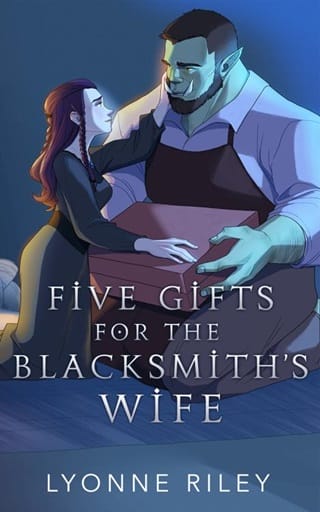Chapter 12
12
HENRY CAMBY WAS SPEEDING ALONG IN A CARRIAGE, LATE FOR AN APPOINTMENT. He had seen her. He had thought he was seeing a ghost and had taken pains to keep his face straight. The ghost sightings had happened before. There were spirits on the plantation grounds, a fact that everyone knew. It was part of the reason Henry tried to treat people well. If you were not good to people in life, he believed, they would almost certainly come back to haunt you in death.
Over the course of his forty-some years, Henry Camby had seen three apparitions. The first was when he was urinating behind a row of cane that he had estimated was high enough to create a curtain of sorts as he took care of his business in the southern field. The spirit, hovering above the ground, was doing a dance in the wind, swaying out of rhythm with the waving cane stalks, and the out-of-rhythmness of it was what drew his attention. That spirit had a face that Henry could almost make out, but as soon as he squinted to see who it was, the spirit disappeared.
The second sighting occurred in the dining room. A surprising place, for what had ever happened there that would cause a spirit to return? Unless it was hungry , Henry had thought, and then laughed. His wife, Gertrude, who was seated at the table with him, had shot him a quizzical look. “We have company for supper,” Henry had wanted to say, but he had restrained himself. Not for concern that Gertrude would think he were crazy—he knew with certainty what he saw: a translucent Negro boy sitting himself down at the table, unfolding a napkin on his lap, awaiting his meal—but because as a general rule neither of them talked to the other more than was necessary, a habit that had been their practice for the last few years. Theirs was a contractual marriage, arranged by two sets of parents who believed, incorrectly it turned out, that they were suitable for each other. They had not had children together and had little to bind them beyond documents. In any case, the Negro boy only stayed through the first course, which was rabbit stew, before he, too, disappeared.
The third time Henry Camby encountered a ghost on his property was in the boiling house. This ghost was more formed than the other two. It was a woman whose edges and face were clear. Round cheeks and jowls, wiry hair, eyebrows that nearly met in the middle. Henry recognized her. She was a former employee named Roberta, who two months prior to his sighting had been ill. Henry had been regrettably slow in recruiting a doctor to see her. Too slow. The doctor, when he did arrive, assured Henry that the woman’s demise was not his fault, but Henry had trouble forgiving himself. He prayed at night over it, fervent remonstrations, but guilt nevertheless clung to his soul. He could not shake it loose. Which is why, he believed, Roberta had come back. He had wronged her in life, so she haunted him in death. That seemed to make perfect sense. The first two, however, remained a mystery, and he took no responsibility for them. The property had been in his family for nearly two centuries. Henry had not taken it over until he had returned from university in London. Anything could have happened before he was in charge. The first two, he believed, had been wronged before his time, a theory that explained their haziness, too.
But then—a fourth? A girl by the road. A girl frighteningly clear in every detail—her oddly handsome sack-brown dress cut high at the neck, the piece of slate that she held to her chest. But there was something else. She looked strikingly like someone Henry had known and had loved. That was the part that scared him the most.
He sat with the fear as the carriage bumped down the road. Henry, driven by a St. Thomas Parish boy named Eli who had been his driver for two weeks by then (the last one having quit), was headed into town to see about procuring a loan from the bank. The year was 1906, and the price for one ton of muscovado sugar, which was the type he produced, was at a near record low. Ever since Henry had come home from England, times had been rough. A punishing drought in 1895 during which nothing would grow. A hurricane three years later that killed over a hundred unfortunate souls. Then three years again after that, in the month of July, a flood that drowned still more. And now Barbados had returned to drought and parched earth. Difficult conditions under which to harvest sugar. But the climate, of course, had always been a concern. The bigger problem now was the rise of beet sugars in Europe, which had led to a declining demand for the type of fine sugar produced here. Other owners Henry knew had been forced to consolidate their estates or subdivide and sell off part of their land. A few had declared bankruptcy. And the effects were not limited to the owners, of course. The consequences of collapse were felt all over the island. It was near impossible to find work. Every day one saw pitiable beggars in the streets. It was no wonder, given the circumstances, that everyone was leaving for Panama. He had heard stories, as everyone had, of men who had gone and returned with enough money to buy themselves a plot of land or a house, the sort of personal transformation that, repeated en masse, could very well transform the whole island. Which was precisely what many estate owners feared. The shifting balance of dependency. Three of Henry’s own tenants had gone, but he could hardly blame them. It was difficult nowadays to eke out a livelihood at all.
As they passed the ghost, Henry nearly asked the driver to stop, but he thought better of it. He kept his mouth shut, kept the fear bottled up. He braced his hand on the carriage door. For the full fifteen minutes that it took to get to the bank, Henry held on to the door and the fear.
He went through with the meeting, which was successful from a business standpoint, but the entire time as he spoke and shook hands and signed papers, Henry could not stop thinking about the girl he had seen.
As soon as he was back home that evening, Henry summoned his longtime lawyer, J. R. Robinson, who was one of the only people on earth he felt he could trust, and asked for a favor.
“Would you comb the newspapers and registers, please, to find record of a woman who may have passed on? Lucille Bunting is the name.”
For the next few nights, as J.R. searched, Henry had trouble sleeping. He did not want to believe it was true. Could Lucille, the woman he had loved so much it had put every other feeling in his life to shame, really have died? Had the ghost of her really come back to him now? He had always held on to the notion that he might somehow see her again. Even now, sixteen years after she had left the estate, he had thought that might yet prove true. Never once had he supposed that seeing her as a spirit was how it would occur. And why should that be? He had been good to her, had he not? He had been exceedingly fair. He had let Lucille take the house and everything in it—in fact, he had urged her to—because he understood it was a way to protect both her and the girls. He knew very well how wrathful Gertrude could be. The fact that Gertrude, afterwards, burned all the clothes that Lucille had ever sewn for the house servants—tossing them into a terrific bonfire out in the field where everyone on the grounds far and wide could see—only proved his point. He had to let Lucille go. Not because he wanted to but precisely because he didn’t.
From the very moment Henry had seen Lucille at the back of the house, he had been struck. That was the only word to describe it—struck. And he had not been able to stop thinking about her since. In the middle of the night, he would creep out of the great house and walk soft-footed over the grass through the dark until he came to the small two-room house 256 steps from his own. He counted the steps each time in his head, both as a measure of distance and as rising anticipation. If anyone were to see him outside, he was prepared to say that he was given to bouts of sleepwalking.
He never knocked on the door. He simply let himself in. That was the arrangement they had. He gently closed the door behind him, and then it was just the two of them, alone. The first time he went to her, he admitted that he had not done anything like this before. It seemed important that she know that. She had looked shocked and said, “You never been with a woman?” He had laughed and said she had misunderstood. That he had done, but like this, with a tenant on this property—never. “That how you think of me?” she had asked, and for a moment he worried that he had offended her, but the coy arch of her eyebrows and the upturn of her mouth made it clear she was teasing.
“No, but I do think of you. Often.”
“How often?”
“Often enough that it draws me out of bed to come see you.”
At that she had frowned, a look of admonishment, as if she were cautioning him. “But these nights—that’s all it can be.”
He knew she was right. And he understood furthermore that those nights were all she wanted it to be. A nocturnal affair, nothing more. When he arrived, she usually walked toward him and unbuttoned his nightshirt without so much as a word. Even when Lucille was with child—his child—they kept their relations confined to the dark. From the house, Henry brought small sacks of ice that he placed upon her swollen feet. He brought slices of sweet bread that no one would miss. He brought packets of sugar, and when he dipped his finger into the rough crystals, Lucille would smilingly lean forward and lick it all off.
When the baby arrived—Millicent, they named her—Henry returned to the house in the nighttime again and again. He had perfected the 256 steps by then. Lucille still unbuttoned his shirt but now Henry lay with the babe against his bare chest. He had had a good life, he always thought, filled with the richest, most wonderful things, but those nights in that small two-room house brought him more happiness than anything that had come before or anything that would come after.
Around the time Lucille became pregnant a second time, things took a turn. Henry would never quite understand why.
One night, Gertrude got up in the middle of the night and found to her surprise that her husband was not there. She usually slept as soundly as a sheep, but the cook had served something for supper that had caused in Gertrude a bout of indigestion, and she woke up in the night to use the washroom. After she did, she lit a candle and carried it with her as she walked through every open room of the house only to discover that Henry was not in any of them. She hissed his name but got no reply. Then she called it louder, not caring whom she woke, but the only person who responded was a maid who poked her head into the hall, and Gertrude, annoyed that the girl should have the nerve to insinuate herself into her marital affairs, sharply ordered the girl back to bed. In her nightgown, Gertrude walked down to the front door and found it unlocked. That was not right. The front door of the house should always be locked overnight. One never knew when an uprising could start, and they should be protected, of course. She turned the doorknob to be sure. She told herself that the door being unlocked might have been nothing more than a simple mistake, but as soon as she told herself that, she knew she was wrong. Henry had left the house. And she knew enough about men to know there was likely only one thing he could be off doing in the middle of the night. She stared out into the darkness and released a great sigh.
In the morning when Henry appeared at the breakfast table Gertrude did not ask him where he had been. She wanted to see whether he might tell her himself. He did not. In silence, Gertrude drank her tea and watched Henry, her husband, butter his toast.
The next night, Gertrude forced herself to stay awake. She lay in bed next to Henry, pretending to be asleep while she waited to see what he would do. Around eleven o’clock, Henry climbed out of bed. Gertrude pretended to stir. She moaned and rolled over. The effect was as she intended. Henry, startled, got back into bed. She had stopped him from leaving. It was as simple as that. She had done it not out of love, per se—Gertrude had never loved Henry, she knew—but out of possessiveness. He was hers. Before God, that was what they had once declared.
Over the next weeks and months, as often as she could—though the lost sleep made her cantankerous—Gertrude pretended to sleep, then pretended to wake to keep Henry where she wanted him. There was the possibility that he went out on nights where she couldn’t manage the ruse, the nights where drowsiness took over, but morning after morning Henry never said a word. It was not until several weeks later when Gertrude heard that one of their tenants, a Negro woman who had birthed two girls on their property, was moving off the estate grounds, and furthermore that Henry himself had permitted her to take her house with her when she went, that her husband effectively told Gertrude everything she needed to know.
 Fullepub
Fullepub 



